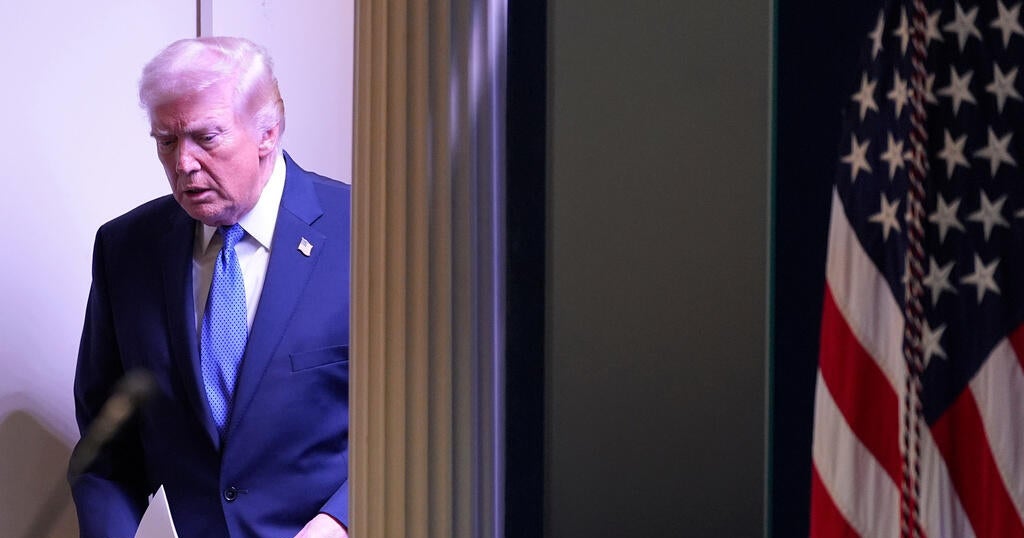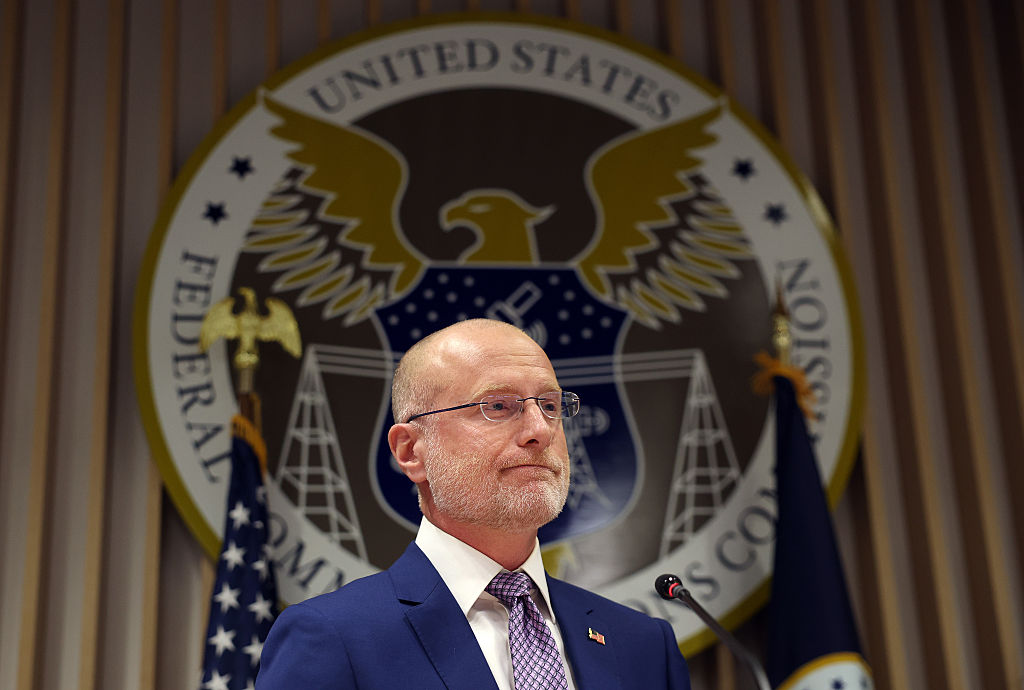Transcript: Scott Gottlieb discusses coronavirus on "Face the Nation," January 10, 2021
The following is a transcript of an interview with former FDA Commissioner Scott Gottlieb that aired January 10, 2021, on "Face the Nation."
MARGARET BRENNAN: In addition to the political turmoil in these final days of the Trump administration, vaccine distribution remains problematic. The CDC reports nearly 7 million first doses of the vaccine have been received. That's only 30% of the total distributed across the country. Meanwhile, infections continue to soar. Thursday was the deadliest day yet. Almost 4,200 people died from COVID-19. There have now been over 22 million cases and more than 370,000 are dead. We want to go now to former FDA commissioner Dr. Scott Gottlieb. He sits on the board of Pfizer and Illumina, a company that is working on sequencing some of the new virus variants. He joins us from Westport, Connecticut, this morning. Good morning to you.
DR. SCOTT GOTTLIEB: Good morning.
MARGARET BRENNAN: There are more people in this country hospitalized with COVID now than during the spring and summer combined. How much are these new strains from the UK, from South Africa, contributing to this surge?
DR. GOTTLIEB: Probably not a lot right now. We're- we don't know for sure because we're not doing sequencing at a big enough scale like the UK is to really detect these variants. We're looking for the UK variant right now, but the method that we're using to try to detect the UK variant wouldn't necessarily spot the South African variant. So, right now we think the prevalence of the UK variant is about 0.2 to maybe 0.3% of infections. And that's based on data that Illumina has helped develop. With the South Africa variant, we don't think it's very prevalent here in the United States, but we could be missing more of those infections. So we don't think that these new variants right now are contributing to the surge of infection that we're seeing. We think this is a post-holiday bounce, but the bottom line is that we need a better system for detecting these things so we can have an adequate public health response.
MARGARET BRENNNAN: And how resistant are they to current treatments?
DR. GOTTLIEB: Well, they- they appear more fit, meaning that they spread more easily, both of these variants. We've done some initial analysis with the U.K. variant, particularly with respect to the vaccines and the monoclonal antibodies, and the medical products that we have right now do appear to be effective against that UK variant. There's more concern around a South African variant because that variant has mutated the spike protein, the protein that's the target for our vaccines and our antibodies in a way that could defeat at least the antibodies and perhaps make the vaccines less effective. We're going to have data on the vaccines in the next couple of weeks. Pfizer, the company I'm on the board of, is working on developing some of that data. So, we'll have a better answer on that question. But it just goes to show you that these viruses are going to evolve. I mean, this virus has been running through the world, around the world, racing around the world largely unchecked. It's been under some selective pressure with the widespread use, for example, of convalescent plasma. So it's inevitable that we're going to see these kinds of mutations in this virus. And this is probably going to be a constant struggle. We're going to have to update our vaccines and our antibody drugs and other therapeutics regularly to keep up with these new variants as they emerge.
MARGARET BRENNAN: The White House task force told some state governors this week that there may be a new American variant of this virus. Then the CDC said yesterday. Basically, they're still trying to figure it out and it could take weeks or months to identify. Is there something that is making this surge worse right now other than our own bad behavior?
DR. GOTTLIEB: Yeah, I don't think so. And the people I've spoken to don't think so. There is a variant in the U.S. that has become the predominant variant right now that's different than the original infection. But that's inevitable that you're going to see evolution in the strains that are circulating. There's no evidence to suggest that it's more fit, more transmissible. And we don't think this South African variant and the UK variant are very prevalent here right now. But the game has changed on the vaccine, to go back to the discussion you were having at the top of this- this hit. We really need to get this vaccine out more quickly because this is really our only tool, our only backstop against the spread of these new variants. If we can get a lot of people vaccinated quickly, we might be able to get enough protective immunity into the population that this stops spreading at the rate that it is. So, we need to acknowledge that it's not working. We need to hit the reset and adopt a new strategy in trying to get out to patients.
MARGARET BRENNAN: I mean, there's only 10 days left to the Trump administration, but they started to acknowledge that the federal plan has some problems because they told states to maybe broaden out who they make the vaccine available to. The president-elect now says he's going to do what you've been talking about, which is release all available supply as soon as he takes office. But does releasing supply solve the problem here if it's really about uptake?
DR. GOTTLIEB: Well, it's a distribution issue right now. It will be a supply issue in two or three weeks, maybe if they can get the distribution right. Right now, there's 40 million doses sitting on a shelf somewhere. So the feds say it's with the states. The states say with- it's with the feds. It really doesn't matter to the patient who's not getting access to the- to the injection. You have 40 million on the shelf. We have 50 million Americans above the age of 65. So, we have supply to push it out to that population more aggressively. I think we need to take an all the above approach and push it out through different channels, including the big box stores, including federal sites that the Biden administration is talking about standing up. We need to try everything right now to create multiple distribution points. A lot of senior citizens aren't going to want to go to a, you know, a stadium to get an inoculation. They're going to want to go to a pharmacy, a local pharmacy or a doctor's office. So, we need to provide more opportunity for people to get a vaccination where they're comfortable getting it. But we do need to get these out more aggressively. Right now, you're right, it's a distribution issue. It will become a supply issue once we get the logistics down, right. And we don't have that right now. We aren't doing a good job getting this to patients.
MARGARET BRENNAN: Was the siege of the Capitol this week potentially a super-spreader event?
DR. GOTTLIEB: Of course. I mean, there's going to be chains of transmission that come out of that kind of mass gathering and the crowd wasn't adhering to what we know are good practices in terms of mask wearing and other things. And I think- I think they deliberately eschewed those things. So, yeah, we're going to see chains of transmission come out of that kind of a gathering, for sure.
MARGARET BRENNAN: We'll be watching it. Dr. Gottlieb, thank you for your time this morning. We'll be back in a moment.



